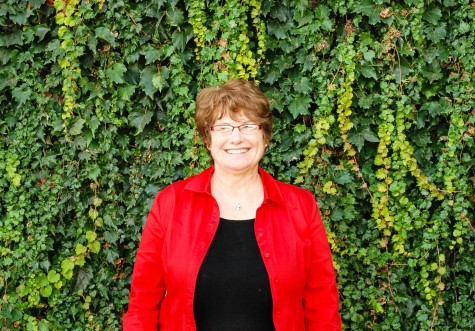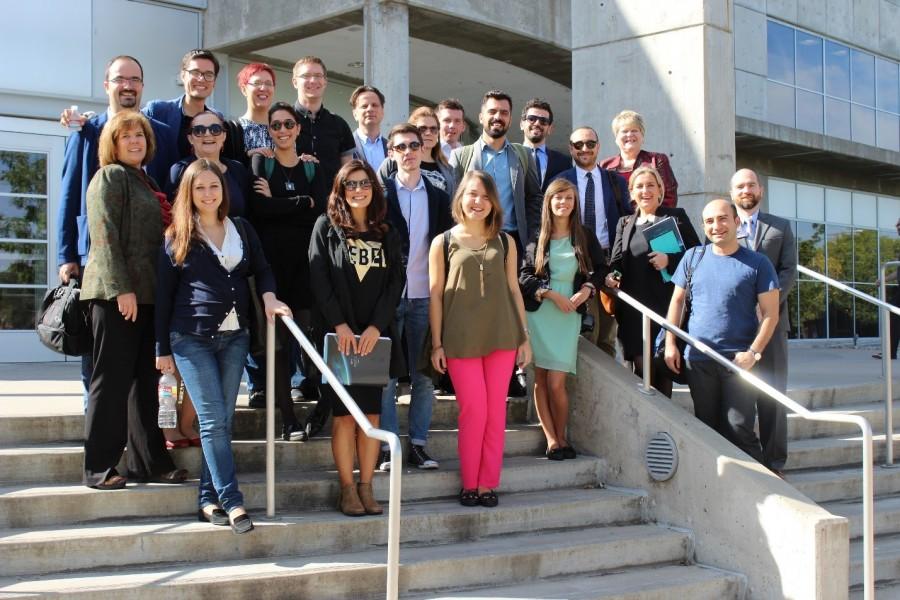International visitors study concept of 2-year college, how it works with community
Image via Courtesy ACC Office of College Communications
International visitors at ACC.
International visitors were on the ACC campus in October, but were not the customary exchange students soaking up the culture of an American college.
The community college experience was of special interest to them, said Business faculty member Susan Kendall.
“The two-year community college is not a format they understand,” Kendall said.
Education differs from country to country, but the usual path to higher education is a direct route from high school to a four-year university. Students graduating from a two-year educational program with marketable credentials or credits to transfer to a four-year institution is a foreign concept.
In most cases, higher education is available only to those who pass a college entrance exam immediately after high school.
The ACC Business Department and Automotive Service Technology Program hosted the 18 “ambassadors” from 17 countries on Oct. 9. These international visitors were sponsored by the U.S. Department of State’s International Visitor Leadership Program (IVLP), a local non-profit organization promoting global awareness, WorldDenver, and the ACC Foundation.
Visitors in IVLP exchange program are leaders chosen by their embassies. They travel to the United States to tour areas according to their professional interests and each one’s country’s needs. The ACC visitors ranged from a member of the Estonian Parliament to the president of the Women Business Association of Cantabria. Most are in the United States to meet with American counterparts to observe successful programs in an effort to create or improve similar programs at home. They were in the United States to observe the advantages of the marriage of educational institutions and the business community.
During the visit, ACC leaders in the Business program and the Automotive Tech program (study to work) stressed the importance of collaboration between education and business and how it happens. ACC’s Business Advisory Board, comprised of community and business leaders, offers valuable advice for college administrators sculpting curricula for degrees that will graduate capable individuals with the necessary skills to succeed in the business world.
“We examine issues from businesses and build [curriculum] from that input,” Kendall said.
The automotive program also relies on an advisory board for insight into the industry’s needs. In fact, the ACC Auto Tech program was recognized by the Association for Career and Technical Education in 2015 for working with an industry advisory committee to develop programs that are relevant and use hands-on-learning with state-of-the-art automobiles and tools.
Beyond advising, the car industry, including local dealerships, contributes generously to the automotive program by donating cars, equipment and money to provide students with the resources to succeed.
The business community benefits from the carefully constructed educational programs. Also, ACC gives back in ways other than producing a skilled workforce.
Business faculty member Denise Lefort and her computer-savvy business students spend time creating websites for minority entrepreneurs as a way of supporting a community that supports ACC.
“The takeaway was how unique Arapahoe Community College is and how many successful programs we had in place to present to the international visitors,” Kendall said.

Geraldine Smith is a reporter for the Arapahoe Pinnacle. She is a second-year, non-traditional student at ACC. (Her grown children have to help with some of the technology and a lot of the math.)
Often the oldest in class, she feels...



